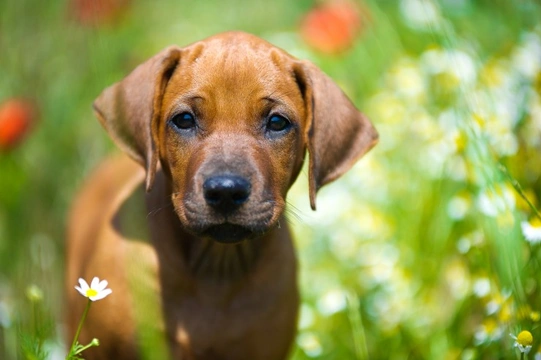
Why is My Puppy Sneezing ?
If you have bought a new puppy, their first few weeks at home with you while they are still small can be one of the most exciting and rewarding times for both of you, allowing you to build up strong bonds with your pup while still enjoying their small size and cute puppy behaviours!
However, taking care of the young puppy can also be potentially stressful, and of course, every time your pup hiccups, appears a bit quiet or otherwise acts slightly out of character can be potentially concerning, and behaviours like these often worries the new owner that something is amiss with their pup, a natural state of being slightly overprotective that comes with taking care of a new life!
One condition or symptoms that often alarms puppy owners is sneezing, particularly if the pup appears to be sneezing repeatedly or potentially showing other signs of ill health as well. Sneezing is by no means not always an indicator of something serious being amiss, just as the odd sneeze from people is not generally symptomatic of something serious either!
However, it is a good idea for the puppy owner to learn about some of the most common causes of puppy sneezing when this is repeated or consistent, and what this means for their dogs. Read on to learn more about the five most common causes of puppy sneezing!
Allergies
Allergies to something are one of the most common causes of sneezing in puppies, and allergies may be more pronounced in younger dogs as their immune systems are still developing, which means that many allergies may ultimately be outgrown or become less severe as your dog ages.
Allergies lead to sneezing as a result of the body’s natural attempts to remove and expel the source of the irritation, and this will generally be accompanied by other symptoms such as a sunny nose, red, irritated eyes, and potentially, skin irritations too.= for systemic allergies.
Some of the most common substances that pups may be allergic to include:
- Pollen.
- Grass.
- Dust in the air.
- Grain in dog food.
- Mould spores.
- Smoke.
Dental problems
While dental problems caused by tooth decay and poor dental hygiene tend to present more commonly in older dogs, pups can have problems with their teeth too, particularly if they have an overcrowded mouth, or when teething and changing over from their baby teeth to their adult set.
Infections and abscesses behind the gum line caused by dental problems can actually lead to sneezing, so keep an eye out for inflamed or swollen gums, and any other problems with the mouth itself that may require a veterinary intervention.
Respiratory infections
Respiratory infections such as colds and sinus problems can all afflict puppies, and it is of course vitally important to ensure that your pup is vaccinated against transmittable diseases such as parvovirus, which can be fatal in young pups, and kennel cough as soon as they are old enough.
If your pup has a minor respiratory infection, they will show the usual signs of a cold, including sneezing, coughing, inflamed glands, and sore, swollen eyes.
Inhaled foreign bodies
Pups do like to chew everything that they find, and will in some cases end up inhaling foreign bodies into their nasal cavities too. Grass seeds, other small particles and things that your dog eats and then inhales can all potentially become lodged in the respiratory tract, which can lead to persistent repeated sneezing as the body tries to expel the foreign body.
If you suspect that your puppy does have a foreign body lodged in their nasal cavity or respiratory system, it is important to take them along to the vet so that they can identify it and remove it.
Tumours and polyps
The rarest potential cause of sneezing in puppies but one that is worth mentioning nonetheless is potential tumour growth, although advanced tumour development is unlikely in young pups. However, a polyp in the nose or another growth of this type can cause sneezing due to the presence of this alien growth, which, if accompanied by nose bleeds or bloody mucous, may merit further investigation.
Brachycephalic breeds
It is also worth noting that brachycephalic breeds of dog, those with short muzzles and squashed looking faces are exponentially more likely to suffer from sneezing and other sniffles than other breeds, as their shortened muzzles make them more apt to inhale foreign bodies, and have problems expelling them if they do pick one up.
Brachycephalic breeds tend to be more prone to problems with their airways and nasal cavities in general, and if the degree to which the airways are shortened is very pronounced, they may require surgery to correct this, to make it easier for them to breathe and less apt to develop problems such as sneezing and inhaling foreign bodies.



